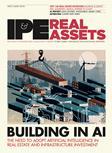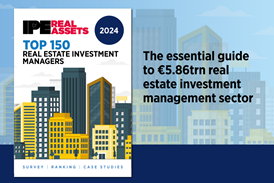The managing director of Germany’s pension fund for auditors and chartered accountants (WPV) has questioned why the €2.3bn fund should invest in overseas property if the cost of hedging the investment exceeds its benefits.
Hans-Wilhelm Korfmacher told the IP Real Estate Global Awards in Munich last week that he had, on several occasions in the past, considered diversifying WPV’s real estate exposure into new markets such as Australia.
“I was really convinced,” he said of a potential investment in Australia. “It was good timing, I liked the country, I liked the market, I liked the legal system – I liked everything, but I didn’t like the cost of currency hedging.
Korfmacher said that he had therefore decided not to proceed with the Australian investment. “In some countries, I cannot afford to hedge – for example Australia, it’s too expensive.
“If I hedged the currency, I can also stay in Germany,” he added.
The managing director also spoke fondly of the opportunities afforded to it by leveraging its direct real estate investments, at one point saying leverage of 70% could be possible.
“Why not? If interest rates are rising, I pay back the leverage,” he told delegates.
He said that the WPV, which receives annual contributions of around €170m a year, could simply use some of these cashflows. As a result, he argued there was no risk to the fund, as any negative impact from the leverage could simply be paid off.
Korfmacher also said that the fund was interested in infrastructure debt, and had already sought exposure to infrastructure equity.
“Of course, we’d only invest in infrastructure debt through funds – we are too small to think about doing direct investments.
“I think infrastructure is the asset class of the future,” he said, noting that in the absence of bank loans, infrastructure would be a good substitute.













